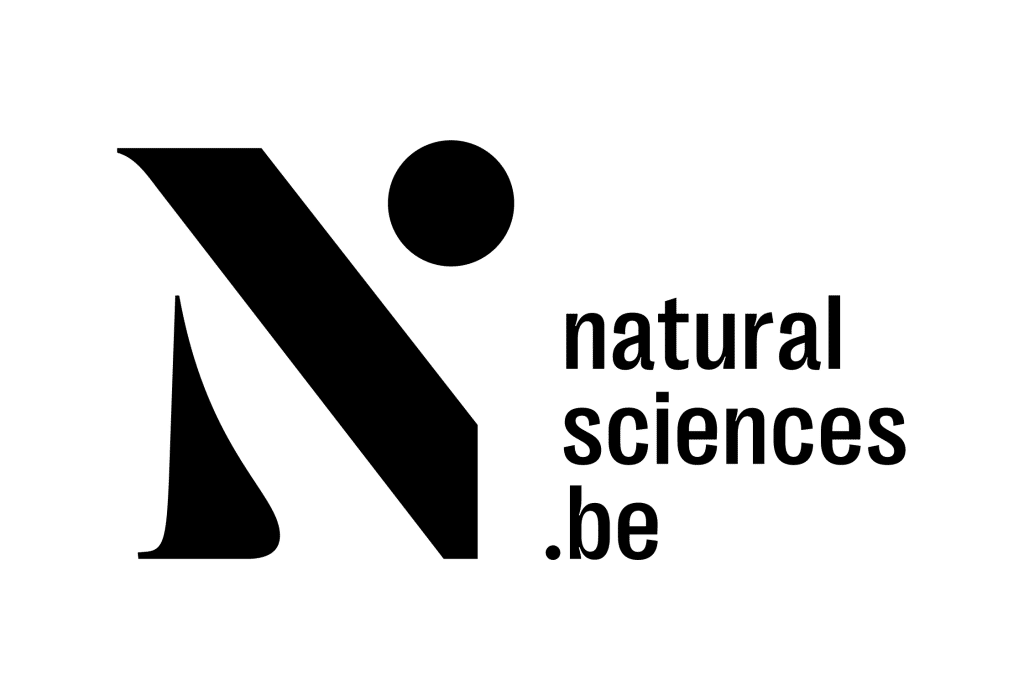About us
Home » About us
Home » About us
Vision and mission
Our vision:
- our planet should remain green, resilient, safe and biologically diverse
- biodiversity should be high on the political agenda in Belgium and in developing countries
- every citizen should be aware of the crucial need to maintain biodiversity and ecosystem services
- biodiversity conservation contributes to poverty eradication and vice versa through the sustainable use and management of its ecosystem services
Driven by the recognition that conservation of biodiversity is of utmost importance for mitigating and adapting to climate change and for increasing the capacity of ecosystems to generate benefits essential for the sustainable development of rural populations, the mission of the CEBioS programme is to mutually strengthen its own capacities and those of its partners to
- promote scientific research, knowledge dissemination and awareness raising on the discovery, conservation and sustainable use and management of biodiversity
- better understand and participate in the science-policy-development interface at various levels, so as to contribute to more informed decision-making on complex biodiversity issues.
The CEBioS programme contributes to the achievement of the UN Sustainable Development Goals (SDGs) related to climate change and biodiversity (SDGs 13, 14, 15), and helps to reduce poverty (SDG 1) and hunger (SDG 2) as well as improve health and well-being (SDG 3). It further contributes to the achievement of the 2020 Strategic Plan for Biodiversity (including Aichi Biodiversity Targets) and the post-2020 Global Biodiversity Framework of the Convention on Biological Diversity (CBD).
Approaches
The CEBioS programme is about working with people, for people and nature, by facilitating, empowering, moderating, networking, and developing and exchanging ideas, best practices, skills, tools and knowledge in the field of biodiversity and sustainable development. It aims at maximal impact by stimulating continuous learning, professionalization, South-South cooperation, train the trainer initiatives and pilot activities, and by providing seed money to enhance multiplicator effects and high local ownership of all processes.
CEBioS intervenes at the interface between science, policy and development practice by touching upon governance, extension and conservation in the field, involvement by local scientists, authorities, civil society organisations and local communities, and valorisation of local and traditional knowledge. With the available funds, CEBioS caters for specific interventions with personal commitment and involvement by the partners, optimizing the best match-making between its mission, expertise and the demands and needs from its partners. CEBioS operates in a participative and multi-stakeholder approach through dedicated calls for projects, short term grants, and earmarked cooperation with institutional partners.
At Belgian level, CEBioS contributes to the environmental strategy of the Directorate-General for Development Cooperation (DGD) as founding member of the Thematic Joint Strategic Framework ‘Resilience of Ecosystems’ (SECORES) and as an active participant in the Geographic Joint Strategic Frameworks for the DR Congo, Benin, Burundi and several other countries. CEBioS seeks synergies and complementarities and aligns as much as possible with the Belgian diplomacy (mixed commissions, embassies), other DGD programmes (Enabel), Belgian NGOs, Belgian Science Policy (BELSPO), Belgian universities and other institutions such as the AfricaMuseum, Botanic Garden Meise and the Institute of Tropical Medicine Antwerp.
At the international level, CEBioS operates in the framework of the obligations of Belgium and the partner countries to the Rio Convention on Biological Diversity (CBD) and related protocols, and other Multilateral Environmental Agreements, as well as the UN 2030 Agenda for Sustainable Development (including the 17 Sustainable Development Goals).
Programme summary
CEBioS’ programme is built around four Strategic Objectives, each supported by four transversal areas of action (capacity development, the activities related to the Clearing House Mechanism, Measuring-Reporting and Verification activities and awareness raising) and each linked to a specific target audience:
- The scientists of the partner countries of the Belgian Development Cooperation acquire knowledge, understand, apply and disseminate results useful for sustainable management, use and conservation of biodiversity and ecosystem services
- National implementing authorities in the south and their partners improve sustainable management and use of ecosystem services to conserve biodiversity and support the livelihood of rural populations through the development of best practices and value chains
- The authorities, decision makers and policymakers develop and implement pertinent policies, strategies and action plans for a sustainable management of the national biodiversity in service of the livelihoods of the local populations in the South
- Enhanced synergy between the partners of the Belgian Development Cooperation, civil society and the private sector to achieve sustainable development by mainstreaming biodiversity issues
Gender Equity and CEBioS Commitment
CEBioS upholds Gender Equity as a fundamental human right, ensuring that opportunities and rights are not determined by gender. Through its initiatives, CEBioS aligns with the UN Sustainable Development Goals (SDGs1, 2 ,3, 13, 14, 15), promoting biodiversity conservation as a means to combat poverty and enhance well-being while ensuring inclusivity and fairness.
Empowering Women in Academia and Advocacy
One key objective of CEBioS’ Comittment to Gender Equity is to advocate for women’s rights and the “Leave No One Behind” principle within its activities. Additionally, CEBioS seeks to break the glass ceiling in academia by fostering an environment where women can advance in their careers without systemic barriers.
Linking Women’s Rights to Biodiversity Conservation
CEBioS recognises the strong connection between Gender Equity and environmental sustainability. By affirming the role of women in biodiversity conservation, CEBioS ensures that gender considerations are integrated into its development cooperation efforts, respecting local contexts while promoting long-term ecological and social benefits.
Team
Team members
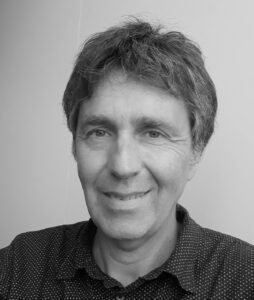
Dr. Luc Janssens de Bisthoven
Coordinator
Luc is biologist and has a PhD at the KU Leuven (1995) on aquatic biomonitoring and ecotoxicology and performed several post-docs in Sweden, South Africa, China and Portugal. After 2 years as a lecturer in Kenya, and 10 years as independent consultant in Germany he joined VLIR-UOS as a program officer in 2007-2013, dealing with management of university programs in a.o. Suriname, Ethiopia, Peru and Tanzania. Since 2013 he is coordinating the CEBioS team of +10 professionals for capacity development about biodiversity, mainly in Benin, Burundi and DR Congo. He loves traveling and bird photography. He is passionate about stakeholder engagement linked to conservation of biodiversity and capacity building.
- ljanssens[at]naturalsciences.be
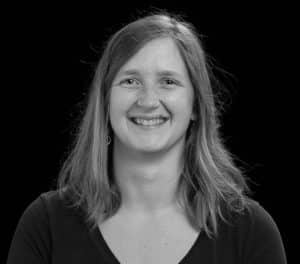
Ir. Anne-Julie Rochette
Scientific Programme Officer
Anne-Julie holds a Master’s degree in Bioengineering, environmental sciences, from Gembloux-AgroBioTech (2010), with a master thesis on lizard farming in Southern Vietnam. After traveling trough Vietnam, Ecuador and Italy for working on environmental impact assessments and natural resources management, she started at RBINS, first under the Belgian National Focal Point to the Convention on Biological Diversity and since 2015 within the CEBioS programme. She focuses on capacity building and policy support in Africa, in particular regarding the development of policy-relevant biodiversity indicators (the ‘IP’ approach). She is responsible for the cooperation with Benin and co-responsible for the Global Taxonomy Initiative (GTI) grants awarded to (para)taxonomists from developing countries, and for Belgian taxonomists combining research with capacity development in developing countries. She coordinated the EVAMAB project about ecosystem services assessment in African Biosphere Reserves, and its implementation in Benin and Tanzania. She loves nature walks, birdwatching and photography.”
- ajrochette[at]naturalsciences.be
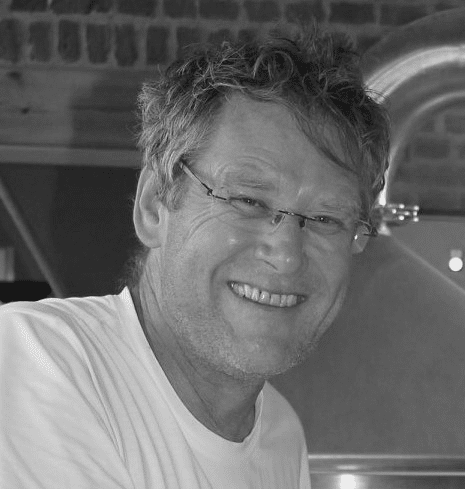
Ir. Han de Koeijer
Belgian CHM Focal Point
Han is a tropical forest ecologist and nature conservationist from the University of Wageningen (MSc, 1989). After working at the University of Wageningen he moved to Africa where he worked in Burkina Faso and Kenya for NGOs and Bioversity International. He joined RBINS in 1999 and started a project to develop capacities on the Clearing House Mechanism of the Convention on Biological Diversity, with funding from the Belgian Development cooperation. This project has grown and became CEBioS in 2013. He is responsible for the CHM and communication capacity building and development, as well as international policy of the CEBioS programme. He loves working in his biodiverse garden and also brewing beer with the Hostieux Moines de l’Abbeye de Villers en Brabant.
- hdekoeijer[at]naturalsciences.be
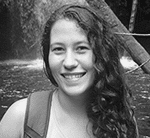
Dr. Tania D'Haijère
Scientific Programme Officer
Tania is biologist and has a PhD at the ULB (2021) on taxonomy, phylogeny and biogeography of an african genus of orchid, Tridactyle. She has a master’s degree in biological sciences (ULB, 2014), specialised in Biodiversity and Vegetation of Tropical Ecosystem, with an Erasmus Mundus at the Dschang University, Cameroon. She performed several fieldtrips in Gabon and São Tomé, and travelled alone in Australia, New Zealand and Thailand. She worked for the nature conservation NGO WWF as a project manager in Democratic Republic of Congo. The project, funded by DGD, focused on community forestry and Sustainable agriculture in the Mai Ndombe region. Since 2023 within CEBioS, Tania is involved in capacity building of staff of RBINS partner institutions in order to improve biodiversity management and valorisation of ecosystem services within PAs in the DRC, Burundi and Benin. At the technical level, this consists of training eco-guards on monitoring habitat dynamics, and preparing and publishing manuals (lexicons) to facilitate this task. Tania also helps young researchers preparing master or doctoral theses on the above themes in the aforementioned countries. She loves sports, karate and dance, art and LARPing.
- tdhaijere[at]naturalsciences.be
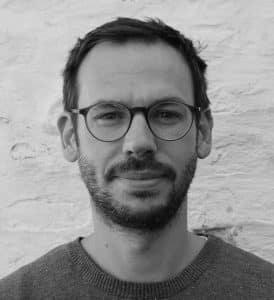
Ir. Thomas Wouters
Scientific programme officer
Thomas holds a master’s degree in Bioengineering, with a specialisation in land use planning, GIS and remote sensing, from the ULB (2008). After his final thesis on the mapping of intra-urban erosion in Kinshasa (DRC), Thomas worked for several months in Tanzania in a nature conservation NGO working in the buffer area of Saadani National Park. From 2012 to 2020, Thomas joined a consultancy firm where he was project manager for formulation, evaluation and technical support missions for different donors (DUE, DG DEVCO, Oxfam, Enabel, DGD) and on themes such as food security, nature conservation and climate change. He also worked as an external expert in monitoring and evaluation of nature projects for the European LIFE programme (DG ENV – LIFE Unit and EASME) and as coordinator of the LIFE Benelux team. In 2022, Thomas joined the CEBioS team with the objective to support the organisation of the 2nd International Conference on Biodiversity in the Congo Basin, which took place in March 2023 in Kisangani. Since 2023 onwards, Thomas is following closely the institutional projects and collaborations of the CEBioS programme in DRC.
- twouters[at]naturalsciences.be
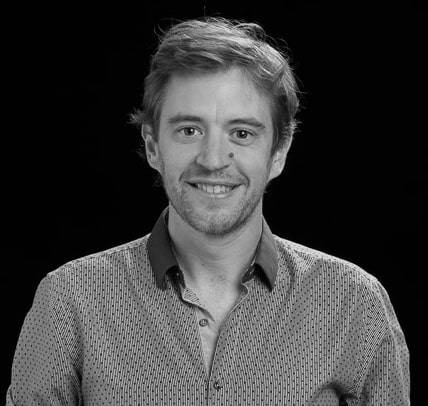
Pierre Huybrechts
Scientific Programme Officer
Pierre holds a Master’s Degree in Public Relations and European Affairs, from IHECS (2009) with a thesis on the EU Commission’s communication efforts regarding specific EU funding programmes. After having wandered the world for a time, Pierre started at RBINS in 2014, as Science Communication Officer for the Belgian Biodiversity Platform. There, he has actively been involved in science-policy interfacing, or “bridging the gap” between biodiversity-science and policy. After two years at the Belgian National Focal Point to the United Nations Convention on Biodiversity, Pierre joined CEBioS in 2022 as Science Programme Officer. He focuses on capacity building on taxonomy and collection management in Africa, through the Global Taxonomy Initiative (GTI). He also contributes to the exchange of scientific and technical expertise through the Belgian Clearing-House Mechanism (CHM). Finally, Pierre keeps a close eye on CEBioS communication strategy. When he isn’t working with deafening electro music in his ears, Pierre enjoys talking about subjects that are close to his heart, like painting, astronomy, and why nothing grows in his garden.
- phuybrechts[at]naturalsciences.be

Kristien Vrancken
Graphic designer
Kristien graduated from film school (RITS, Brussels) as an animator. In between jobs in an animation studio, she got a pedagogical degree and got selected for an intensive training “Multimedia and Web design” (SYNTRA, Leuven, 1998-1999). In 1999 Kristien said goodbye to the animation industry and started working at the RBINS (Brussels), as a multimedia and web designer. Since 2007, she does of most graphic design and DTP at the CEBioS team (RBINS, Brussels). Some of her pastimes are photography, modern ballet, movies and gardening.
- kvrancken[at]naturalsciences.be
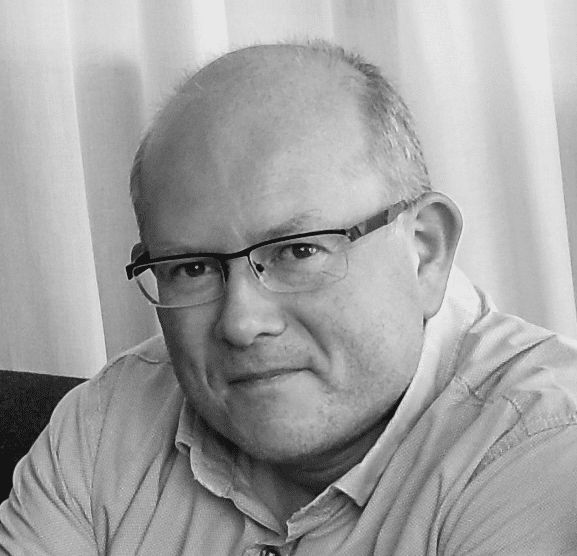
Vincent Pinton
Accountancy
Vincent started his career at RBINS in 1996 where he worked for 10 years at the accounting department. In 2006, as the CEBioS programme was evolving, he joined the team to specifically take care of the programme’s accounting. He is very passionate about the tourism sector in Wallonia, photography, and the Walloon natural and architectural heritage.
- vpinton[at]naturalsciences.be
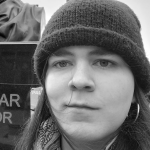
Alice Vandommele
Secretariat & logistics
In 2022 Alice graduated from the KU Leuven with a master’s in history. After a short stint in the real estate sector, she joined RBINS as a new administrative assistant. Now she helps out with tasks such as GTI logistics, sending out books (such as ABC Taxa) and occasionally shuttling guests around the building. In her free time, she occupies herself with comic books, tabletop roleplaying games and country music.
- avandommele[at]naturalsciences.be
Former staff members
Dr. Anne Franklin, Pascale Balhaut, Salima Kempenaer, Dr. Patrick Luyten, Arnaud Reveillon, Dr. Yves Samyn, Dr. Maarten Vanhove, Dr. Jackie Van Goethem, Dr. Jean Hugé, Yassine Loufa, Mariam Agarad, Dr. Marie-Lucie Susini Ondafe, Dr. Katrijn Baetens, Dr. ing. Jolien Venneman
Local representatives of CEBioS
Dr. Hamed Olaniran Odountan
Holding a PhD in Aquatic Ecology, Hamed is an expert in the ecological study, biomonitoring and conservation of aquatic ecosystems in Western Africa, mainly Benin. He is a research assistant at the Faculty of Science and Technology (FAST) at the University of Abomey-Calavi (UAC) and Executive Director of CAPEBio NGO.
- hamed.odountan[at]capebio-benin.org
Prof. Dr. Ir. Marcel R. B. Houinato
Professor Agronomy Pastoralism and Director of the Doctoral School of Agronomic Sciences at the Faculty of Agronomic Sciences at the University of Abomey-Calavi (UAC)
- marcel.houinato[at]fsauac.bj
Prof. Céphas Masumbuko Ndabaga
Professor at Université Officielle de Bukavu (UOB), DRC, Faculté des Sciences, Département de Biologie
- masundab2002[at]yahoo.fr
Prof. Basile Mujinya Bazirake
Professor at Université de Lubumbashi (UNILU), DRC, Unité Bio-géochimie et Ecologie des Sols et des Écosystèmes Tropicaux (BESET)
- bazirake_4[at]hotmail.com
Ir. Longin Ndayikeza
Office Burundais pour la Protection de l’Environnement (OBPE)
Direction des Forêts
Service de Recherche en Biodiversité
- ndayilkeza2009[at]gmail.com
Dr. Anne Laudisoit
Anne is a wildlife biologist with special expertise in zoonotic (vector-borne) and neglected emerging disease epidemiology. Because of her interest in the interface between human, animal, and environmental health, she became a One Health disease ecologist linking biodiversity and health with a growing interest in conservation in fragmented landscapes. She is currently senior scientist and PREDICT country liaison to Ivory Coast and the Republic of Congo at EcoHealth Alliance, New York.
- laudisoit[at]ecohealthalliance.org
Dr. ir. Jean Hugé
Jean is a sustainability scientist in environmental governance, systems ecology and resource management. He has expertise in social-ecological systems, science-policy interface, biodiversity conservation and impact assessment (associated with VUB, ULB, UGent, UHasselt & Open University of the Netherlands). He is currently visiting professor at the Vrije Universiteit Brussel (VUB) and assistant professor in environmental governance at the Open University of the Netherlands.
- jean.huge[at]ou.nl
Prof. dr. Maarten Vanhove
Maarten’s research focuses on the biodiversity and evolution of parasites and their aquatic hosts, with a focus on fishes and their parasitic flatworms. Often working in Africa, he is also interested in biodiversity science in the Global South, more specifically capacity development and policy translation for the sustainable management of African aquatic ecosystems. He is currently assistant professor at the Faculty of Sciences at UHasselt (Zoology: Biodiversity and Toxicology, Centre for Environmental Sciences).
- maarten.vanhove[at]uhasselt.be
Dr. Els De Keyzer
Els her PhD research at the Laboratory of Biodiversity and Evolutionary Genomics at KU Leuven aimed to increase biological understanding of sardine stocks in Lake Tanganyika and to improve monitoring capacity as well as fisheries management. The project was funded by a VLIR-VLADOC fellowship and co-supervised by the Centre de Recherche en Hydrobiologie (CRH)-Uvira (DR Congo), CEBioS and the Royal Museum for Central Africa.
- els.dekeyzer[at]kuleuven.be
EXTERNAL COLLABORATOR CEBIOS
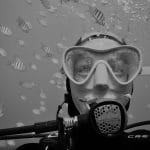
Dr. Anne Laudisoit
Anne is a wildlife biologist with special expertise in zoonotic (vector-borne) and neglected emerging disease epidemiology. Because of her interest in the interface between human, animal, and environmental health, she became a One Health disease ecologist linking biodiversity and health with a growing interest in conservation in fragmented landscapes. She is a senior scientist and currently developing Coral Restoration projects called Linda Bahari in Zanzibar, Tanzania.
- alaudisoit[at]gmail.com
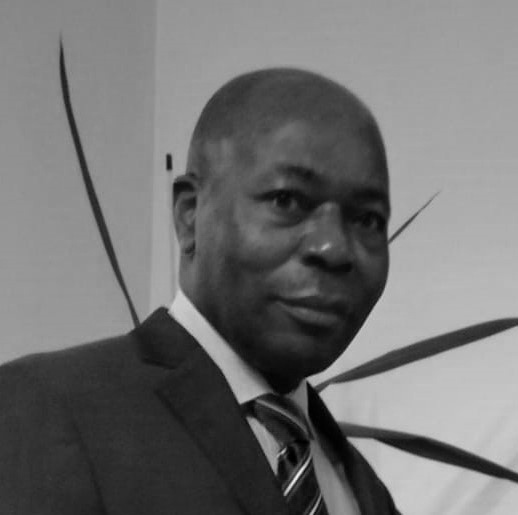
Dr. François Muhashy Habiyaremye
Scientific programme officer
François Muhashy Habiyaremye holds a PhD in Botanical Sciences (ULB 1995), a specialization degree in Applied Natural Sciences and Ecodevelopment (ULg 1998) and a master’s degree in biological sciences (National University of Zaire 1980). Awarded the E. De Wildeman (1996) and E. Laurent (2010 -2013) prizes, he is also a Titular member of the Royal Academy of Overseas Sciences (Belgium) and of the Congolese Academy of Sciences. He was among others a researcher in the framework of the UNESCO/World Heritage program, dedicated to endangered Protected Areas (PA) in the DRC. Since 2006 within CEBioS, François has been involved in capacity building of staff of RBINS partner institutions in order to improve biodiversity management and valorisation of ecosystem services within PAs in the DRC, Burundi and Benin. At the technical level, this consists of training eco-guards on monitoring habitat dynamics, and preparing and publishing manuals (lexicons) to facilitate this task. François also mentors young researchers preparing master or doctoral theses on the above themes in the aforementioned countries.
- fmuhashy[at]naturalsciences.be
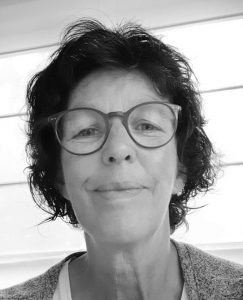
Ir. Hilde Keunen
Scientific Programme Officer
A Masters in Agricultural Engineering, Hilde co-founded and managed a society servicing several international scientific organisations, while she was privately involved in some agricultural and social projects in Kenya. From 2008 onwards, having become an experienced all-rounder, she headed major biodiversity-related projects in the DRC for the Africa Museum of Tervuren, among which the organisation of the Boyekoli Ebale Congo scientific expedition in 2010 and the creation of the Centre de Surveillance de la Biodiversité (CSB) in Kisangani. Since 2015 she is a scientific officer for the CEBioS programme, focusing on capacity building and policy support in Africa, in particular regarding the development of policy-relevant biodiversity indicators (the ‘MRV’ approach). She continues to work with the CSB and other relevant stakeholders, mainly in the DRC.
- hkeunen[at]naturalsciences.be
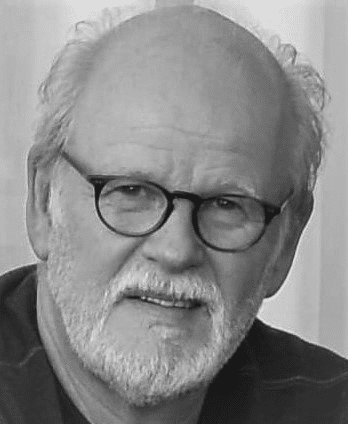
Dr. Erik Verheyen
Senior Researcher
Erik defended his master thesis on the behaviour of a cichlid fish from Lake Malawi at the University of Ghent (MSc, 1982). After his PhD project on the evolution of African lacustrine cichlids at the University of Antwerp (1990), he joined RBINS in 1991 as a postdoc and became research director (BAP) at the Department of Biology, Evolutionary Ecology Group at the University of Antwerp (2008-today). By investigating the evolutionary history of vertebrates throughout sub-Saharan Africa, he contributes to the inventory and conservation of these often poorly documented vertebrate faunas and facilitates investigations on their role in the spread of zoonotic diseases. He has co-authored more than 220 scientific publications and coordinated nationally and internationally funded research and capacity building projects in tropical Africa, including in Kisangani, DR Congo (since 2006).
- everheyen[at]naturalsciences.be

